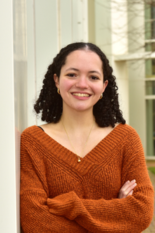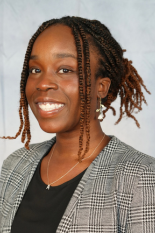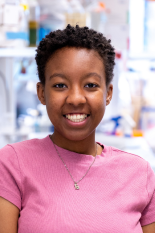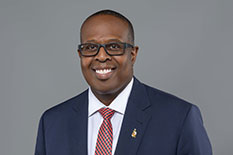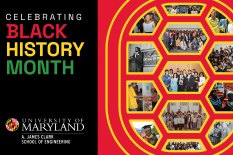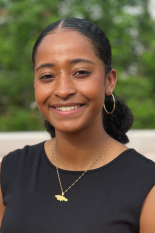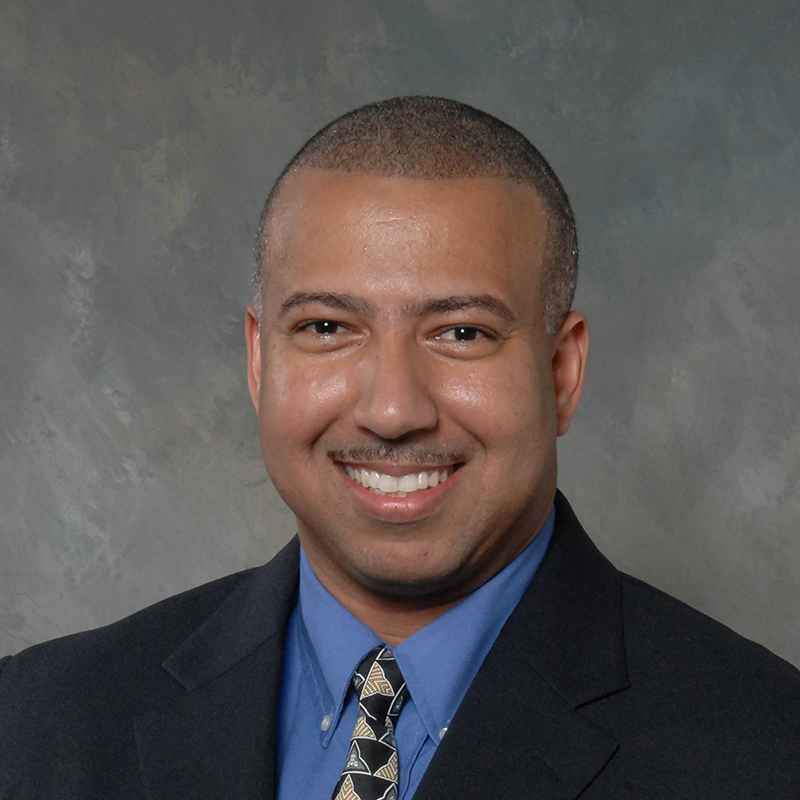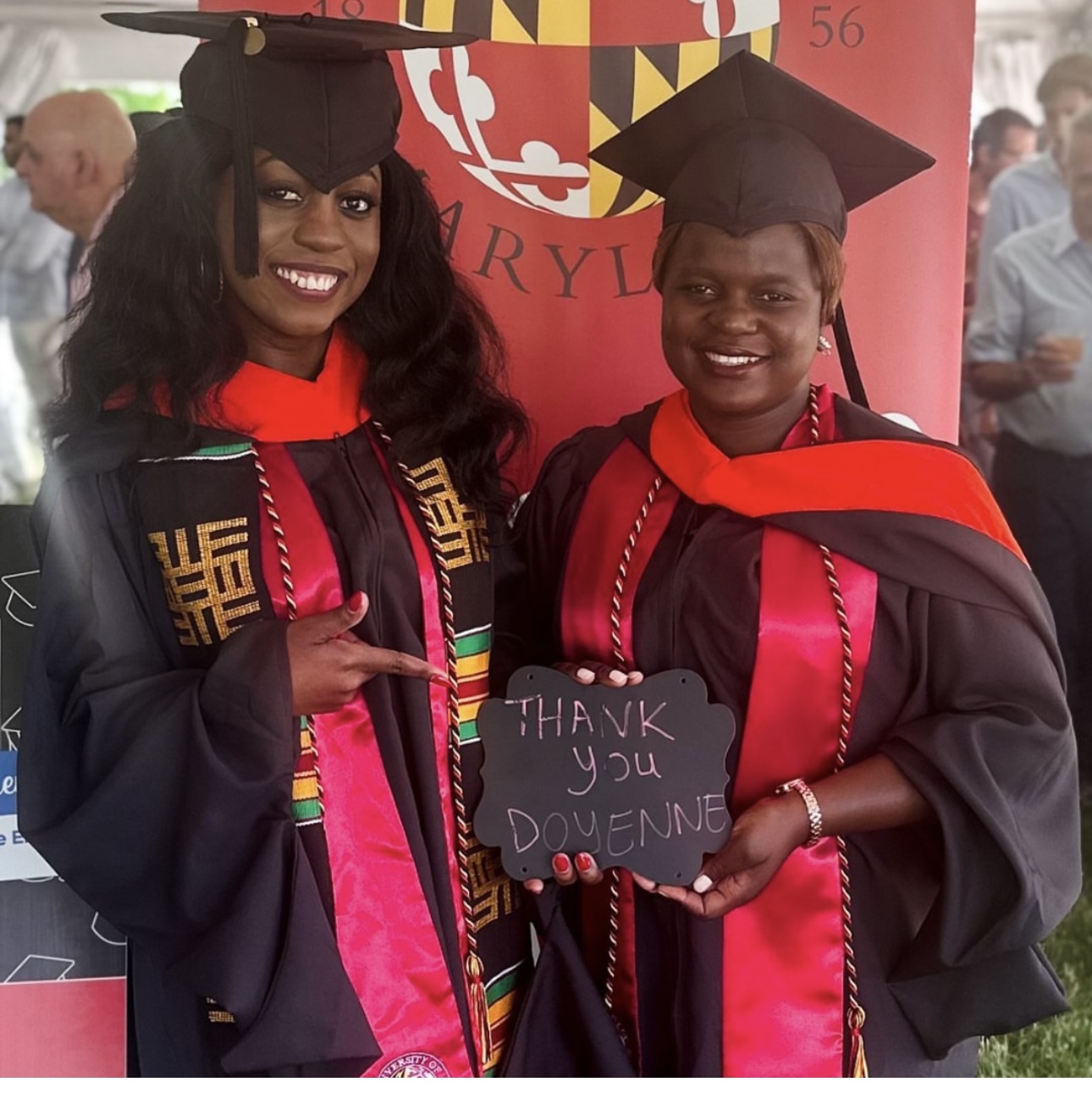News Story
Fischell Institute Black History Month Spotlight: Vené Richardson-Powell
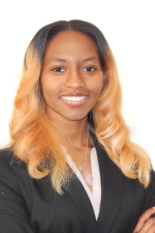
Vené Richardson-Powell is a faculty assistant in Fischell Institute Affiliate Fellow and BIOE Assistant Professor Jenna Mueller's Global Biomedical Devices lab. Richardson-Powell graduated from the University of Maryland in 2022 with a bachelor's degree in bioengineering.
After graduation, Richardson-Powell chose to take a gap year to continue working in the Mueller Lab.
"I wanted to stay in Dr. Mueller's lab after I graduated because I didn’t feel that my time as a researcher in her lab was long enough,” she explained. “I knew there were more skills I wanted to learn.”
The Mueller Lab works to develop safe, affordable diagnostic and therapeutic technologies that improve the management of cervical and other cancers in low- and middle-income countries (LMICs). Working in this environment gives Richardson-Powell the unique opportunity to combine her interest in science and math with her desire to pursue a medical career.
“Dr. Mueller is very supportive of you and your goals, which has been great for me during my gap year,” she said. “I’ve learned a lot of professional and life skills while working in the lab.”
Richardson-Powell added that working in Mueller’s lab is truly a joy.
“We don't all have the same projects, but if you have trouble solving a problem or a failed experiment, there is always someone willing to help you and cheer you up," she said. "There is never a dull moment, and we have so much fun together, whether performing experiments or doing a group activity."
Richardson-Powell's research focuses on expanding the parameters of a novel ablation therapy that uses ethanol to kill precancerous cells in the cervix. Ablation is a common, minimally invasive treatment option that usually requires expensive equipment and skilled professionals, two essential aspects of precancer treatment that are not readily available in LMICs. The ethanol ablation method offers a more straightforward approach at a lower cost, while still effectively treating the disease.
"The most exciting part about this work is knowing who it will impact in the future,” said Richardson-Powell. “My projects will not only impact women living in low- and middle-income countries, but also those in high-income countries who cannot afford alternative, more expensive treatments.”
As a Black person in engineering, Richardson-Powell recognizes that some areas in STEM need more help or encouragement to support different groups of people.
"I think that this part of my identity encourages me to pursue pathways that support those in Black communities and can also have great global impacts," she said.
Since working in the Mueller Lab, women's health has become a passion of Richardson-Powell’s. She appreciates that the lab works to help all women, especially those who look like her.
Recently, Richardson-Powell co-authored and published the paper “Impact of Injection-Based Delivery Parameters on Local Distribution Volume of EthylCellulose Ethanol Gel in Tissue and Tissue Mimicking Phantoms” in the biomedical engineering journal IEEE Xplore with Dr. Mueller, an accomplishment she is proud of.
"It is so gratifying to see all of the experiments come together in a paper and demonstrate this new opportunity to increase access to healthcare treatments," she said.
Richardson-Powell acknowledged that while having her research published is a great achievement, deciding where to go with her career has been a process. Surrounding herself with peers that support her throughout career highs and lows has been vital.
"Accomplishments do not come without challenges, and I think the biggest challenge I have had to overcome is patience,” she said. “It seems simple, but applying to graduate school and figuring out your next step is hard. When you receive a rejection letter, it can make some things feel gloomy. Having people around you to share your challenges with is very important, especially in a gap-year phase. Meeting and working with people who have been where you are and seeing that they overcame those challenges is comforting. It is a testament that I can overcome them, too."
Richardson-Powell believes it is important to recognize both big and small accomplishments. She hopes Black History Month offers an opportunity to appreciate the impact of Black pioneers, whose achievements are often overlooked or unacknowledged.
"From the light bulb filament to traffic lights, the contributions of Black people have made history for decades without recognition,” said Richardson-Powell. “Black History Month is a time where we can highlight Black successes by bringing awareness to them, ensuring their accomplishments are more than a fun fact or hidden figure when they are left out of history books."
In the future, Richardson-Powell plans to attend medical school. However, the longer she works in Mueller's lab, the more she considers applying to an M.D./Ph.D. program.
Outside of the lab, Richardson-Powell practices Spanish by listening to a podcast every morning. Her other hobbies include painting and taking a pottery class.
Published February 23, 2024

